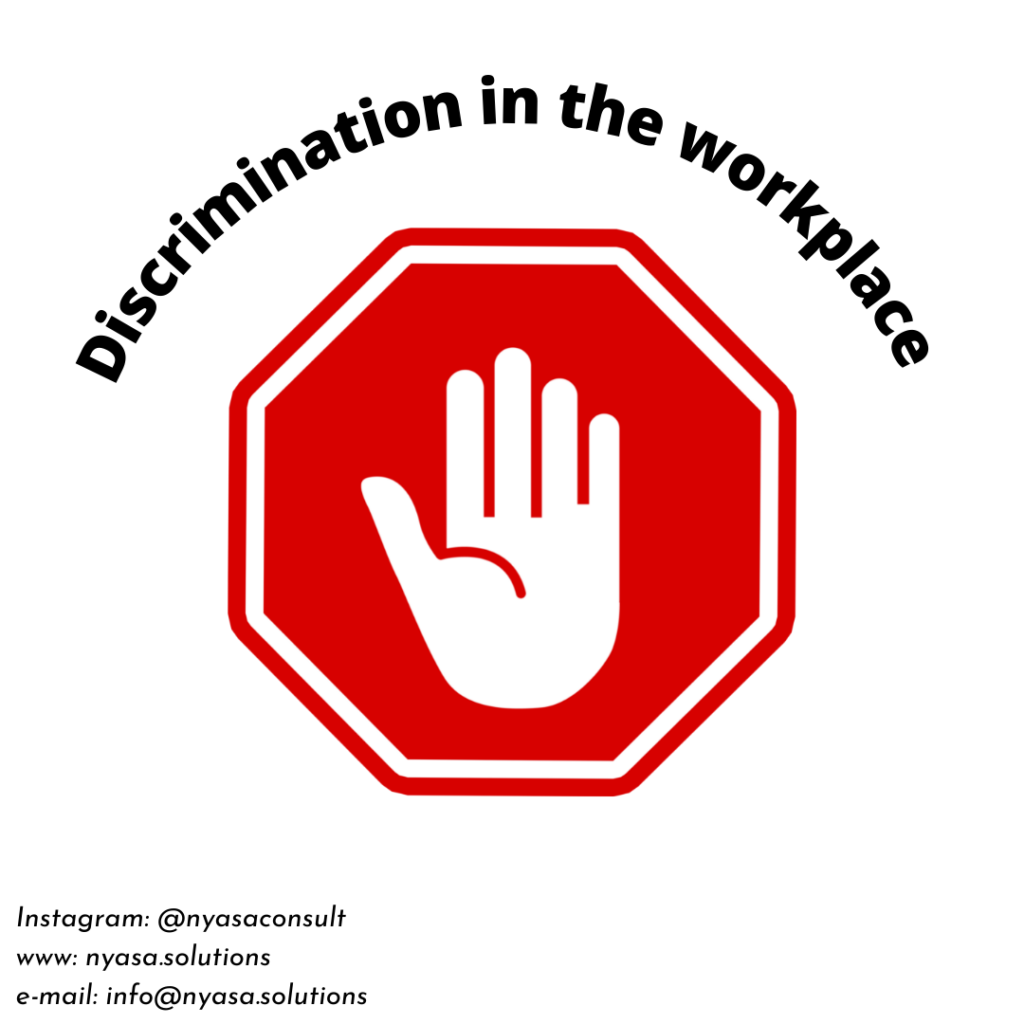Discrimination in the workplace is a major issue. Every employee has the right to equal treatment at the workplace without discrimination. This means that things such as gender, age, skin color, religion, sexual preference, disability, or political preference should not play a role. That sounds simple, but in practice, it is often more unruly.
For example, it is not always clear or apparent that discrimination is indeed taking place. There are many conceivable situations in which an employer or supervisor has to choose between two or more employees for a certain promotion or position. The employer may be able to explain his or her choice on the basis of qualities, knowledge, or experience. But the employee who draws the short straw can nevertheless – rightly or wrongly – feel that, for example, his or her gender, age or ethnicity played a role in the decision.
In addition, it is not always clear to everyone when discrimination occurs. For example, a comment about religion or gender can be humorous to one person, while it is very offensive to another. However, if this happens on a continuous basis, there could be discrimination in the workplace.
Examples of discrimination in the workplace
An employee has to suffer through ‘jokes’ from his colleagues because of his/her skin color, ethnicity, religion, etc. A woman who has just announced that she is pregnant suddenly doesn’t get a contract extension. An older employee who can no longer keep up with the work is ‘bullied away’ by the manager. In a company, women are paid less than men on average, while they do about the same work. These are all examples of discrimination in the workplace.
Discrimination in the workplace has major consequences
For employees who have to deal with discrimination at work, the consequences can be detrimental. In the first place, there are professional consequences for their career. For example, if someone repeatedly misses a promotion due to discrimination, this has direct consequences for his or her income and further career growth. Secondly, there are the psychological implications of discrimination which can make one’s life extremely miserable.
Essentially, the personal dignity and mental integrity of the person being discriminated against are compromised. Discrimination at the workplace can lead to feelings of fear, insecurity, inferiority, sleeping problems, illness, and long-term absence and or worse.
What a mediator can do in the event of discrimination in the workplace
Discrimination is punishable, so anyone who is discriminated against can report this, possibly leading to legal proceedings. At the same time, those involved can also choose to start a mediation process. A criminal case and mediation can co-exist. One process does not replace another. By opting for mediation, the person who is being discriminated against does not relinquish the right to file a report.
Whether or not a report is filed, in many cases the person who is being discriminated against and the person responsible for it will continue to come into contact in the future. Mediation in the event of discrimination in the workplace is therefore primarily aimed at restoring the relationship between those involved. This process is called ‘recovery mediation’. It offers the person who has been discriminated against the space to tell his or her story and what the experiences have done to him or her. Listening to, recognizing, and valuing their experiences are important elements of that process. Recovery mediation offers those involved the opportunity to stay on good terms.
Both the person who has been discriminated against and the organization can take the initiative to engage a mediator.
Advantages of mediation in discrimination in the workplace
In the first place, the person who has suffered from it gets recognition for what he or she has gone through. This can help with the processing of the experiences and offers space to be able to continue with the organization.
But the person who has exhibited the discriminatory behavior also benefits from recovery mediation. He or she may never have realized the impact his/her words or actions can have on others.
Finally, the employer also benefits from recovery mediation. Not only does the organization have an interest in healthy relations in the workplace, but mediation can also prevent image damage if the case ends up going to court. Moreover, as mediation is a confidential process, the dispute will never be made public.

